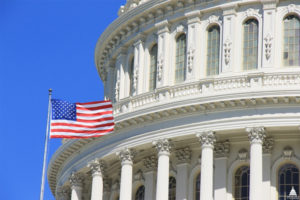House Permanent Select Committee on Intelligence: Russia Investigation

House Permanent Select Committee on Intelligence
March 12, 2018
Russia Investigation
[PDF: intelligence.house.gov/uploadedfiles/
hpsci_russia_investigation_one_page_summary.pdf ]
Overview
Following a more than yearlong, bipartisan investigation into Russia active measures targeting the 2016 U.S. election, the House Intelligence Committee has completed a draft report of 150+ pages, with 600+ citations.
The draft report addresses, in detail, each of the questions within the agreed parameters of the investigation, as announced in March 2017. It analyzes:
- Russian active measures directed against the 2016 U.S. election and against our European allies;
- The U.S. government response to that attack;
- Links between Russians and the Trump and Clinton campaigns; and
- Purported leaks of classified information.
Initial Findings
The draft report contains 40+ initial findings that describe:
- A pattern of Russian attacks on America’s European allies;
- Russian cyberattacks on U.S. political institutions in 2015-2016 and their use of social media to sow discord;
- A lackluster pre-election response to Russian active measures;
- Concurrence with the Intelligence Community Assessment’s judgments, except with respect to Putin’s supposed preference for candidate Trump;
- We have found no evidence of collusion, coordination, or conspiracy between the Trump campaign and the Russians;
- How anti-Trump research made its way from Russian sources to the Clinton campaign; and
- Problematic contacts between senior Intelligence Community officials and the media.
Proposed Recommendations
The draft report includes 25+ proposed recommendations for Congress and the executive branch to improve:
- Election security, including protecting vote tallies;
- Support to European allies;
- The U.S. government response to cyber-attacks;
- Campaign finance transparency; and
- Counterintelligence practices related to political campaigns and unauthorized disclosures.
Conclusion
The draft report will be provided to the Committee minority on March 13 for review and comment. After adoption it will be submitted for a declassification review, and a declassified version will be made public. The report’s completion will signify the closure of one chapter in the Committee’s robust oversight of the threat posed by Moscow-which began well before the investigation and will continue thereafter.
Additional follow-on efforts arising from the investigation include oversight of the unmasking of Americans’ names in intelligence reports, FISA abuse, and other matters.
